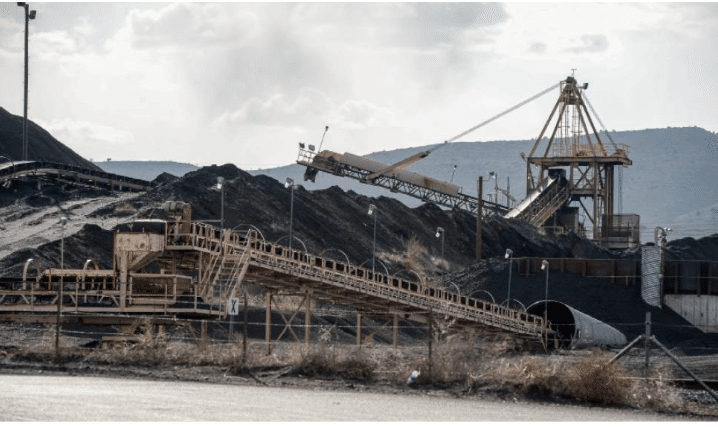Source: The Salt Lake Tribune
Several environmental groups on Monday sent a joint letter to federal authorities asking them to investigate Utah’s plan to sink $53 million of federal mineral royalties — revenue that should be dedicated to local public works projects — into a deepwater terminal in Oakland, Calif., that would ship Utah coal oversees.
The groups allege Utah leaders are brazenly circumventing common-sense limits on how the Utah Permanent Community Impact Fund Board, or CIB, is to administer such revenue. This past legislative session, lawmakers passed a bill authorizing the CIB to trade its federally sourced dollars with state dollars that would be targeted to “throughput” projects geared toward moving Utah products to distant markets.
While the measure was billed as a way to boost the economic prospects of rural Utah, critics call it a “money-laundering scheme” to subsidize Bowie Resource Partners, Utah’s largest coal producer, at the expense of the environment.
“This appears to represent the worst kind of corporate cronyism that members of the Utah Legislature are usually so fond of rallying against,” Joshua Kanter, board chairman of the Alliance for a Better Utah, said in a news release. “Diverting these funds is not only improper, but will leave these communities without the money they really need to help them retool their economic base as the coal industry continues its decline. There has been no showing that there is a shortage of available port capacity for Utah coal or that exporting Utah coal to Asia makes economic sense, either of which is easily addressed by the free market without this shell game and abuse of the public trust.”
The alliance joined HEAL Utah, Grand Canyon Trust, Earthjustice, Sierra Club and other groups in petitioning the Justice and Interior departments to assess the legality of Utah’s plan, which is structured as a loan to four coal-producing counties. Sevier, Sanpete, Carbon and Emery counties would invest $50 million in the proposed Oakland Bulk and Oversized Terminal, proposed for an former Army base on Oakland’s Outer Harbor. The deal would secure half the terminal’s throughput capacity, equal to about 5 million tons a year, for Utah products that would be delivered by rail. The remaining $3 million would be steered to private consultants.
The project is intensely controversial in the Bay Area, where local activists and politicians are working to prevent coal from passing through the $250 million terminal, part of a larger port and logistics center under development on city-owned property. Next week, the Oakland City Council is scheduled to debate a potential ordinance regulating the movement of coal through the city or possibly banning it outright.
Such moves could trigger a lawsuit from port developers, but the environmental groups’ letter claims that coal shipments would harm West Oakland, “a neighborhood already heavily impacted by transportation pollution and burdened by some of the worst air quality in the region. … Thus, [the funds] would be used not only to fund a project outside the state of Utah, but would also contribute to the continued pollution of a vulnerable community.”
The 19-page letter is addressed to Attorney General Loretta Lynch; Gregory J. Gould, director of the Office of Natural Resources Revenue; and Mary Kendall, the Interior Department’s deputy inspector general.
It raises specific concerns about the role played by investment banker Jeffrey Holt, who was acting as the counties’ “strategic infrastructure adviser” while he served on the CIB and chaired the Utah Transportation Commission. Holt has since resigned those posts and moved to New York, but critics say the arrangement smacks of conflict of interest.
Holt has powerful incentives to see the terminal move coal, the letter says, because he stands to make at least $2 million for his investment bank under a contract he has with Sevier County to win approvals for a short-haul coal-moving rail line that is contractually tied to the Oakland export terminal.
Meanwhile, critics say the $53 million loan contradicts the goals of the federal Mineral Leasing Act (MLA), the statute that directs half the royalties and other lease payments to the states where the development occurs. This law dictates that the money addresses social and economic burdens counties experience from mining and drilling. MLA money can be used only for the planning, construction and maintenance of “public facilities” and provisions of a “public service.”
“The MLA’s plain language, legislative history and its subsequent interpretation demonstrate that the law was not meant to subsidize private projects that promote yet more mineral leasing,” their letter states.
But a coal export terminal, the letter states, would promote more mining and exacerbate the very impacts CIB money is supposed to address.
Read The Salt Lake Tribune article here.

